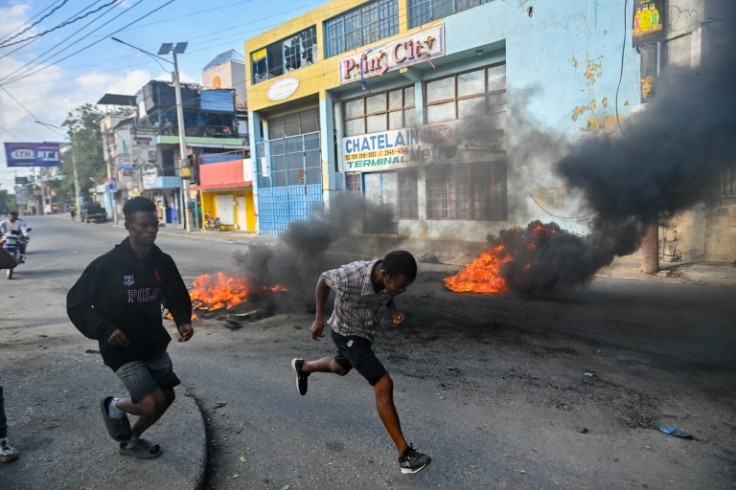
At least 70 people, including 10 women and three infants, were killed in a gang attack in Pont-Sondé, a small town about 60 miles north of Port-au-Prince, Haiti. According to the U.N. human rights office, the attack also left 16 others injured as gang members torched homes and vehicles, forcing residents to flee.
The assault highlights escalating gang violence in the country, particularly in the agricultural Artibonite region, which has experienced increasing instability as chaos spills over from the capital.
The International Organization for Migration reported that more than 6,000 people have been displaced by the recent bout of violence. The UN also reported that at least 3,661 people have been killed since January this year, as stated by CNN.
Haitian Prime Minister Gary Conille condemned the massacre, describing it as an attack not only on the victims but on the entire Haitian nation. "This heinous crime, perpetrated against defenseless women, men, and children, is not only an attack on these victims but on the entire Haitian nation," Conille said in a statement on social media.
The attack - attributed to the Gran Grif gang, the most powerful gang in Artibonite -, reportedly involved the destruction of at least 45 homes and 34 vehicles. Local rights groups indicated that the attackers entered the town by canoe, catching many residents by surprise. Despite warnings of a potential attack circulating for two months, local authorities were unable to prevent the massacre.
St. Nicolas Hospital received 25 victims with gunshot wounds, according to The Washington Post. Hospital director Frantz Alexis reported that five people were already dead upon arrival, and 15 remain hospitalized.
This recent wave of violence comes at a time when Haiti is grappling with multiple crises. The World Food Program recently warned that nearly half of the country is facing acute hunger. In addition, allegations of corruption have surfaced against three members of Haiti's transitional presidential council, further undermining confidence in the government's ability to address the worsening situation.
The U.S. Treasury Department recently imposed sanctions on Luckson Elan, the leader of the Gran Grif gang, and Prophane Victor, a former Haitian lawmaker, for their involvement in arming gangs to control the region. Meanwhile, security forces, including the Kenyan-led international mission and anti-gang police units, have been deployed to the area in an attempt to restore order. However, residents and rights groups continue to express frustration over the slow response and lack of security.
The Kenyan-led mission, backed by the U.N., has been tasked with countering gang violence and preparing the country for new elections. Despite its mandate being extended for another year, the mission has been hampered by limited personnel and funding, drawing criticism from many in Haiti who feel the efforts have yet to yield tangible results. So far, only 410 personnel have been deployed, far short of the 2,500 projected officers needed.
The U.S. Drug Enforcement Administration (DEA) recently announced the closure of its field office in Haiti, despite growing concerns over drug trafficking in the country. This decision comes as Haiti, plagued by armed gangs, has become a key transit point for drugs like South American cocaine and cannabis from Jamaica.
© 2025 Latin Times. All rights reserved. Do not reproduce without permission.


